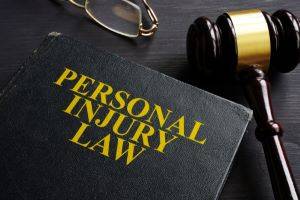 After establishing your right to recover, the next step is to determine if there are insurance companies who are liable for payment of your damages. At times, more than one insurance company may be liable. If the at-fault party carried no insurance, there may be other parties with a legal relationship to the at-fault party who have insurance.
After establishing your right to recover, the next step is to determine if there are insurance companies who are liable for payment of your damages. At times, more than one insurance company may be liable. If the at-fault party carried no insurance, there may be other parties with a legal relationship to the at-fault party who have insurance.
The laws pertaining to the different types of insurance coverages and the right of insurance companies to be reimbursed (“subrogation”) can be quite complex. There are times when liability insurance companies rightfully or wrongfully deny that their insurance policies will cover negligent parties. There are also times when your own insurance company may rightfully or wrongfully deny that your insurance policy will cover your claims.
Uninsured/Underinsured Motorist Coverage
Sometimes, the negligent party has no insurance, and no other party is responsible for the accident. In these situations, you may have the right to pursue claims against your own insurance company for uninsured motorist (UM) benefits.
If the negligent party had insurance but its limits were not adequate to cover your damages, you may have the right to pursue claims for underinsured motorist (UIM) benefits against your own insurance company.
If you were a passenger in someone else’s vehicle, you may have the right to pursue claims for UM or UIM benefits from the insurance company that insured the vehicle and/or your own insurance company.
Health/Disability and Medical Payments Insurance Coverages
You may also have other coverage that provides benefits to you for damage caused by someone else’s negligence. Medical payments (med pay) coverage is a type of coverage that you can purchase through your own auto insurance company for the purpose of covering your accident-related medical bills.
If you have disability, mortgage, or auto loan insurance, you should also take advantage of those policies.
Workers’ Compensation
If your accident occurred while you were working on the job, you may have the right to recover workers’ compensation benefits, which includes coverage for your accident-related medical bills. However, benefits under workers’ compensation laws will rarely fully compensate you for the damages caused by an accident. You also have the right to seek compensation from the at-fault party and his or her insurance company, but your workers’ compensation carrier may be entitled to a portion of that recovery.
Consult with an attorney.
It is always best to talk to an experienced attorney as soon as possible so that a lawyer can help you understand the different types of insurance coverages that may affect your personal injury claims. Contact our attorneys to schedule a consultation to discuss your case.
Visit our Facebook page to stay up to date on our latest posts that may answer your questions today.


